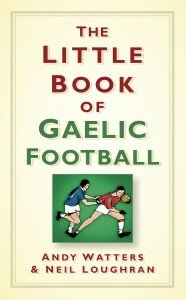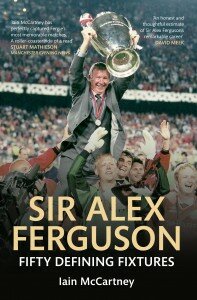You’re right. FIFA 14 and Football Manager 14 are great ways to enjoy the beautiful game. But there are other ways to be part of the action.
FUBA Tactical Football Game is the latest in a line of brilliant soccer board games. It is destined to be one of the classics like Subbuteo and Soccero. It has a throwback feel and intelligent gameplay, a place to show off your knowledge of tactics.
It allows you to choose a formation and make decisions on the fly, resulting in a fun and realistic experience. It’s like being the manager on the sideline, right in your own home. It’s a different and great way to experience the beautiful game.
We reached out to Hannu Uusitalo from UP Games to gain some perspective on the game and his inspiration for creating FUBA.
1. Where did you come up with the idea for FUBA? How did you decide on a name?
In 2008 we were watching the Euros and we got an idea of a game which would simulate a soccer match from a tactical view. Initially we planned the game only for our own board game group, just to have a game we like to play. Later Kim joined our gaming group and made a visual layout for the game. After that we decided to make a print.
Initially the name for the game was “Futispeli,” which is the Finnish nickname for a soccer match. Because it means the real soccer, we ended up trying to find a better name. We had several ideas and asked players’ opinions from several countries. Most people voted for FUBA and thus we chose it.
2. What is the game’s biggest strength?
It is probably the game mechanic, which is fast paced, but offers all kinds of interesting events in a soccer match. We have tried to balance the game length and odds to get enough variety to game results, but also keep goals and cards to realistic numbers. Also one headstone in design was that the situations in the game board would look like situations in real soccer.
3. Are the FUBA creators big football fans?
Jaakko is the one who knows everything about soccer. Others of us like to watch, especially Euros and World Cups, but are otherwise not big fans.
4. Are you familiar with other soccer games?
We have played Subbuteo couple of times, but the main reason why we started to develop FUBA was that we did not find any similar soccer games.
5. What other projects are you working on?
For FUBA we are planning an expansion, probably a book, which contains more detailed tactics and rules. The idea is not to make the game longer and more detailed, but offer different kinds of optional rules. Players can then choose which rules they want to use and customize their match or tournament. For example, we can have optional rules to reduce playing time to 30 minutes or detailed rules which brings substitutions and injuries to the game.
We have also several projects and ideas for war games, but we have no plans or timetable for publishing the next games. We do not want to quickly publish rubbish only for money. We want develop games we like to play ourselves. After we have a game which we enjoy, there is also chance that someone else might like it.
6. What should we know about the FUBA development team?
I am the game’s designer, but also work as a structural engineer. Kim Paqvalin, who is in charge of graphics, has over 20 year experience of graphic design. Jaakko Uusitupa, our football adviser, works as a property analyst.
Facebook Photo Gallery
This game is a big deal. They expect to have a championship held in Finland this year, but could hold a larger event elsewhere in Europe in 2015.
Overall we highly recommend this game even though we love FIFA and Pro Evo as much as anyone else. This is something different and unique, a great option for any soccer fan. You can’t go wrong with this one.




